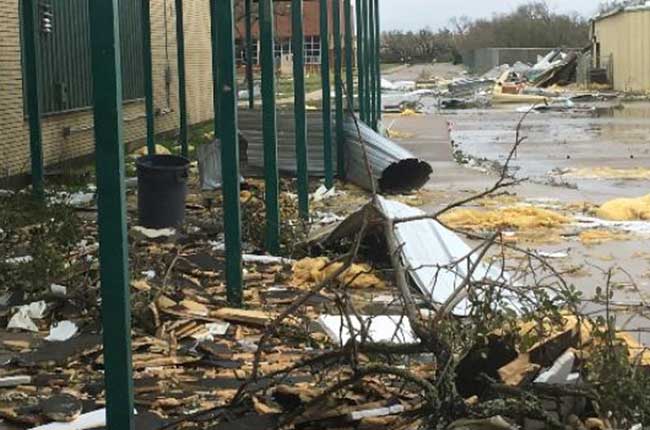Texas superintendents are arguing that school ratings based on standardized testing will not accurately reflect how schools are doing in areas affected by Hurricane Harvey and the ongoing recovery.
While collecting the data necessary for determining ratings could be valuable, the problem arises in assigning grades, sanctions or repercussions to those schools serving affected students, said Daniel Bowen, assistant professor of educational administration and human resource development at Texas A&M University.
Close to 20 percent of the state’s student population was impacted by the storm. School is back in session for students, but the state’s superintendents are fighting to waive the accountability ratings that are tied to students’ scores on state standardized tests this spring. They addressed the House Public Education Committee at a hearing last month.
The updated A-F grading system for rating schools and districts was approved by the Texas Legislature earlier this year, and the first grades for districts were set to be announced in August. Under the existing rating system, schools and districts either pass or fail.
“It’s unjust because of the fact that I don’t think you can rightfully compare schools in other parts of the state that weren’t affected in the same way,” Bowen said.
He points to research that shows that student performance suffers when they miss school due to inclement weather, which means any decreases in accountability ratings are entirely out of the control of affected campuses.
“I think it’s worthwhile for students to take the tests because we still need to track progress [and] while the increasing emphasis on standardized testing has come under a great deal of criticism, it is important to distinguish the collection and analysis of valuable educational data from accountability-based sanctions,” Bowen said. “Education researchers and policymakers can use test data to more effectively serve affected students, but immediately tying sanctions and evaluations to schools that were severely impacted – I don’t know if that’s necessarily the right approach.”
Mike Morath, Texas Education Commissioner, said the Texas Education Agency likely will take into account data on how many students and staff members were displaced and how that disrupted classrooms. He expects to announce more details in the coming days.
###
Media contact: Ashley Green, education and human development communications specialist, at 979-458-1334, or a_green@tamu.edu; or Elena Watts, marketing and communications specialist, at 979-458-8412, or elenaw@tamu.edu.




